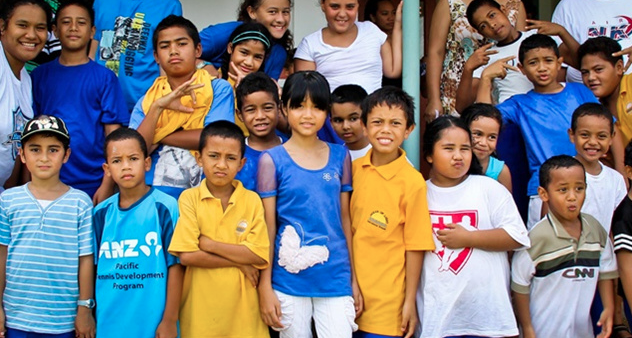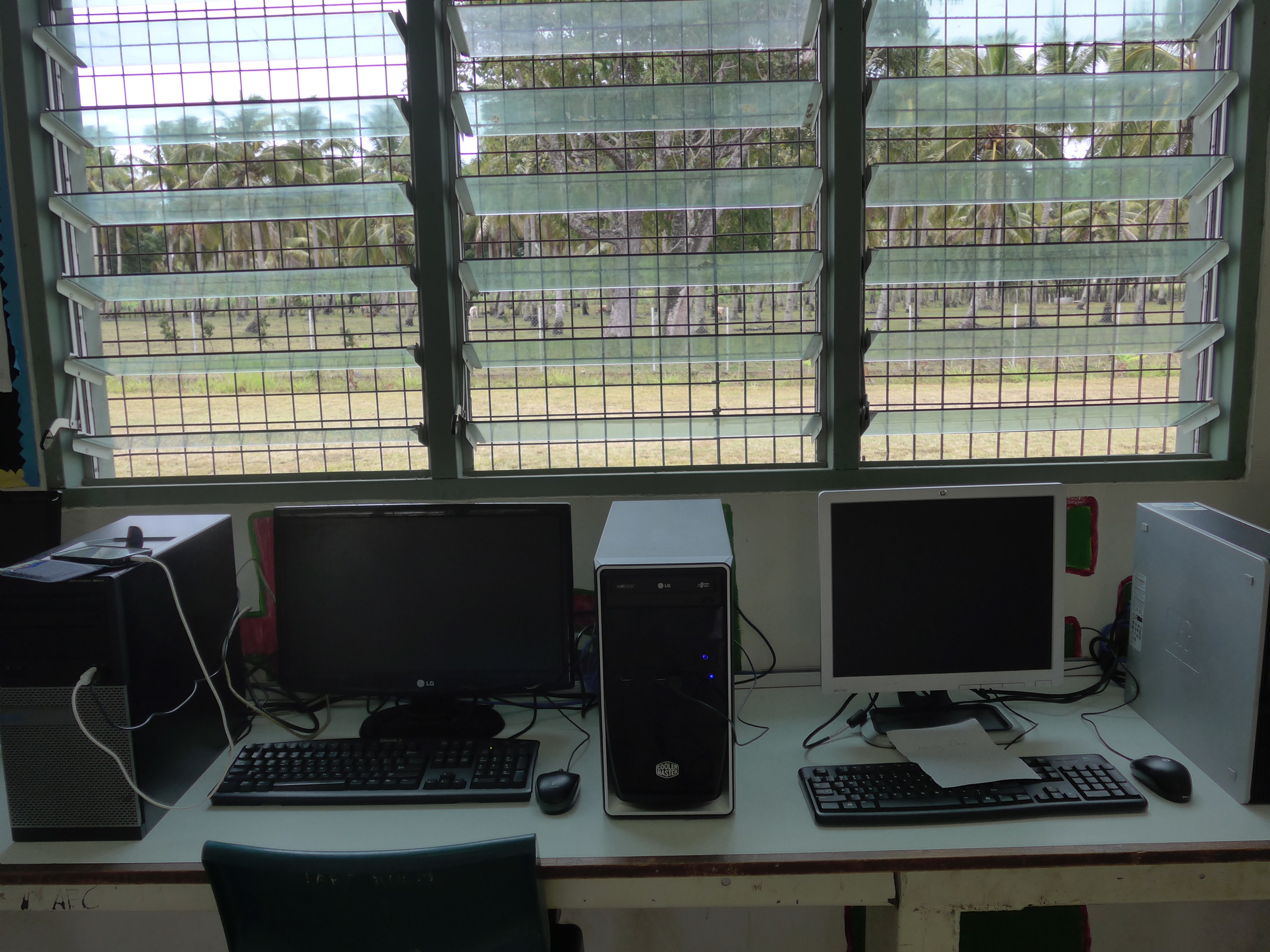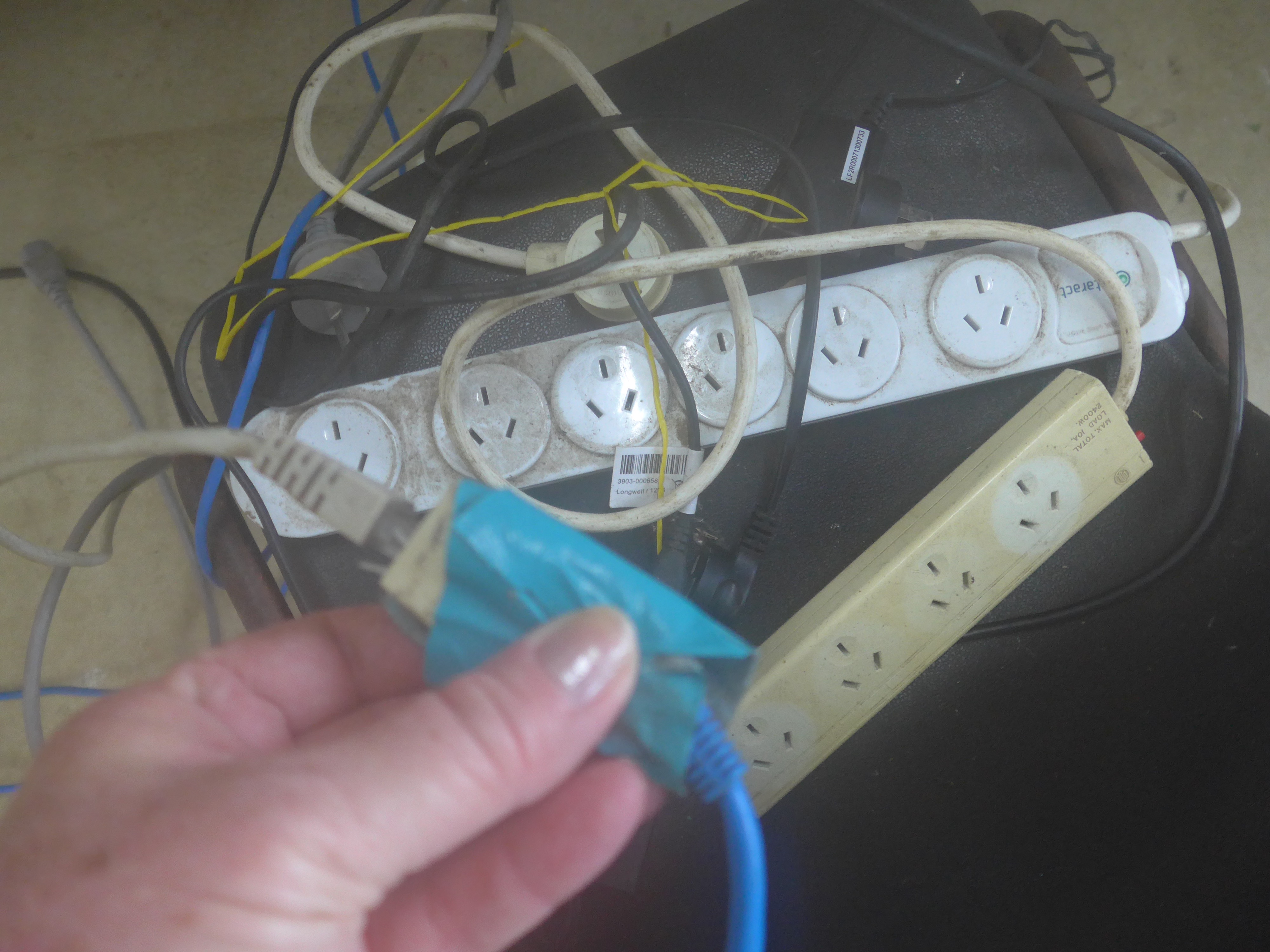I just finished teaching the first 10-week term at Ocean of Light International Schools in Tonga’s capital of Nuku‘alofa last Friday. It’s like no other experience I’ve had in my 30+ years in the classroom.

Ocean of Light International Schools in Nuku‘alofa, Tonga. Click on this photo to read more about the school. • Credit: Ocean of Light International Schools
Every Monday morning the whole school meets together, students sitting on mats on the floor, and begins the day with a devotional of beautiful singing and inspirational thoughts. Throughout the week, this ritual is continued in each individual homeroom class, not only at the beginning of the day, but also at the end of the day.
As you can see in this video, the students wear traditional Tongan uniforms. The girls wear skirts with a blouse tucked in and a kiekie, usually made of woven pandanus palm leaves, which resembles an apron that goes all the way around the skirt. Girls must wear their hair in braids with yellow ribbons. The boys wear shirts tucked inside their tupenu, a wrap-around skirt, over which they wear a taʻovala, a solid mat also made from pandanus palm leaves. The taʻovala the boys wear at school are woven from nylon since they are less expensive than those woven from palm leaves. Each school on the island has their own colors so you can determine which school students attend by the colors of their uniforms. The colors of Ocean of Light International Schools are yellow and blue. Both boys and girls wear sandals for shoes. Flip flops are not allowed.
My school offers educational programs for students as young as three years old up through high school. It’s run by the Bahá’ís of Tonga. The Bahá’í Faith and its teachings provide the foundation for the school. One of the essential principles of the Bahá’í Faith is the belief in “unity in diversity” and the need to establish communities free of all forms of prejudice. As such, students and staff of all religious, cultural, socio-economic and linguistic backgrounds are welcome at the school and all are treated equally.

Bahá’í Principles • Credit: vivaciousvjr via Pinterest.com
All classes are taught in English, but there are several students who speak no or very little English. Most of the students’ native languages at home are Tongan or Chinese. There are several students whose parents are from New Zealand, Australia, Fiji, Papua New Guinea and India.
The majority of the students are extremely respectful and well-behaved. They are not allowed to have cell phones or other mobile devices on campus.

Students at Ocean of Light International Schools • Credit: Ocean of Light International Schools
I teach Information and Communication Technology (ICT) using a curriculum based on the Cambridge International Examination Program. My biggest challenge is the technology, or better put, the lack of technology at the school. When I first arrived there were nine computers in the lab that actually worked. Now I have 20 that work most of the time. (Some classes have as many as 35 students.)

The school’s computer lab within view of a coconut plantation.
Last week, there was no Internet and the server was down since the main building where it was located had no electricity. There is one laptop computer for all the teachers to share as well as one projector. None of the teachers have their own computers in the classrooms so a few usually come to use computers in the lab during their recess or lunch time.
There is no air-conditioning in the school. The first two weeks of school were absolutely miserable with heat. (I was ready to quit after three days!) A cyclone blew through in the end of February and cooled things off a bit. The summer heat has finally abated. I am told that February and March are the hottest months here. Remember, Tonga is in the Southern Hemisphere, so we are in autumn–the equivalence of October in the Northern Hemisphere.

With no air conditioning, the computer lab is open to the outside elements. Dust, humidity and insects take their toll on the equipment.
And to make matters even more challenging, the second ICT teacher left in the middle of the term to teach at another school, leaving me to teach all the classes, Grades 3-12, as well as to maintain the computer network.
Despite the challenges, I do enjoy teaching at the school.
I love this quote by Nikos Kazantazkis: “True teachers are those who use themselves as bridges over which they invite their students to cross; then, having facilitated their crossing, joyfully collapse, encouraging them to create their own.”
At the end of the day I joyfully collapse, in hopes that I will be able to help these students build a bridge to their future.
